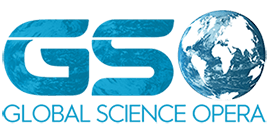Link to Beginnings!
The Beginnings opera premieres on November 20th, at 2 pm CET. To connect directly to the streaming online, click HERE.
The Beginnings opera premieres on November 20th, at 2 pm CET. To connect directly to the streaming online, click HERE.
The 2024 Global Science Opera Dance Mob Beginnings
We welcome all of you to learn the choreography, film it while you and your students are dancing. Please send the recording to Janne for final editing for BEGINNINGS.
Choreography and dance: Sofie Bjelland
Composition: J. S. Bach
Voices: Rebekka Kirsten Smith
Keyboards/MIDI keyboards: Oded Ben-Horin
Lyrics & arrangement: Oded Ben-Horin
Recording & mastering: Jim Kvamme
Mixing: Jim Kvamme & Oded Ben-Horin
Producers: Oded Ben-Horin & Jim Kvamme
Recorded at Atmosphere Studios, Bergen, Norway
Filming & editing: Janne Robberstad
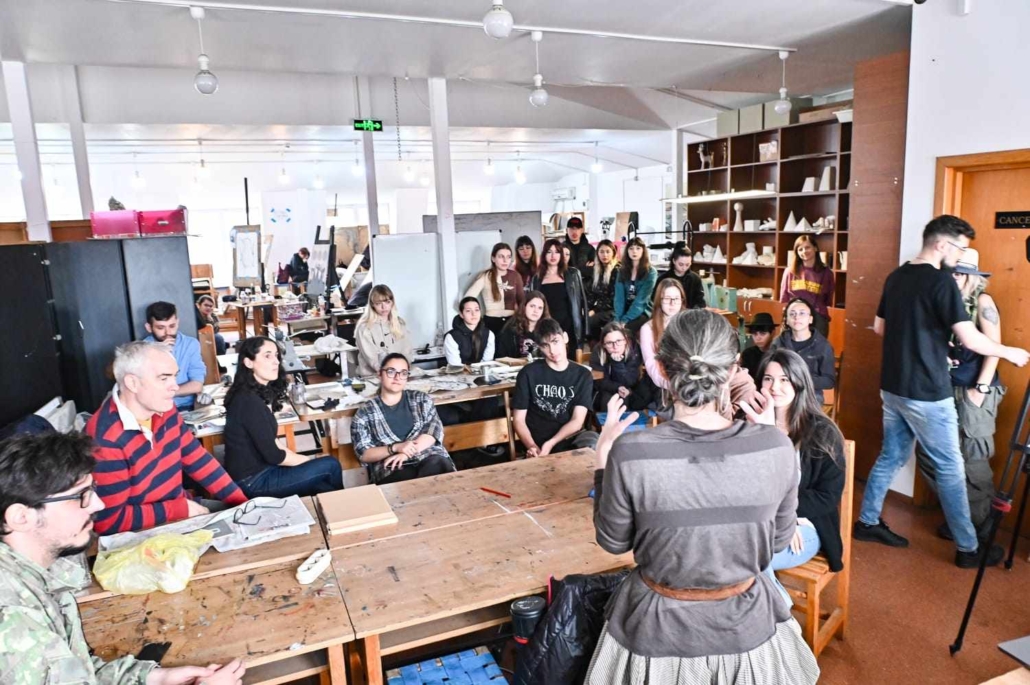
In April, the GSO production manager was given the opportunity for an Erasmus+ exchange visit to Romania, and what a wonderful opportunity! First stop was the Fine arts department at Ovidiu University of Constanta. The students and teachers here got an introduction to the GSO and to eco-design, and we had several in-depth conversations about the importance of creativity and the arts. A group of sporty students embarked on an experimental co-creative design/drawing-session.
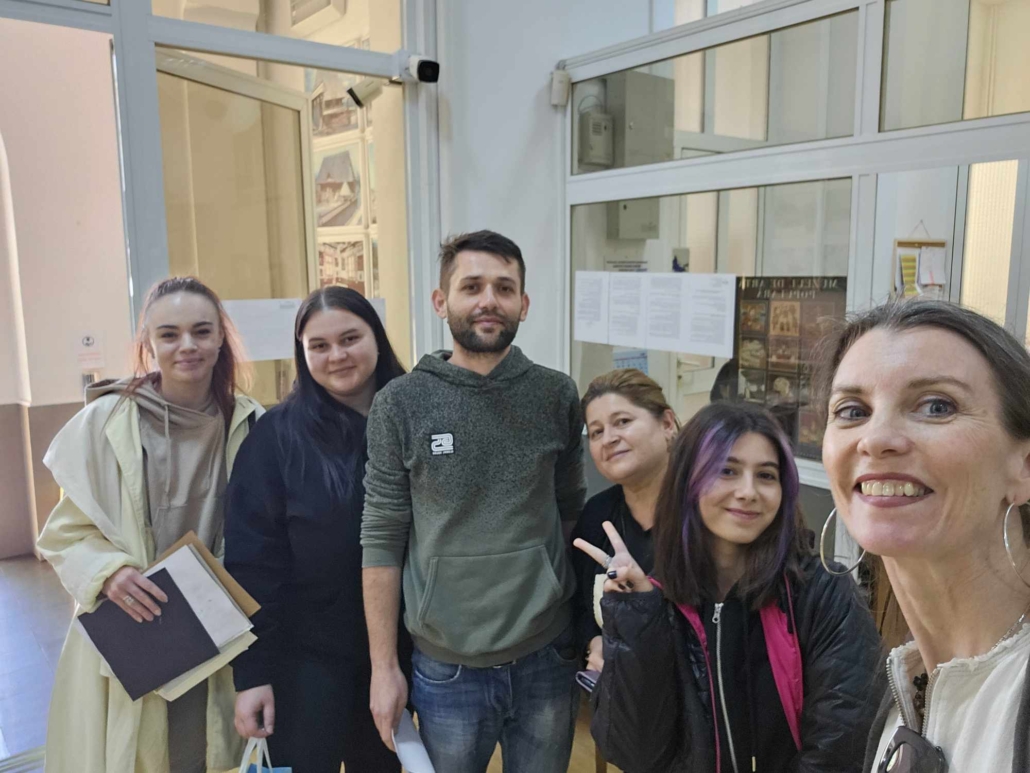
Our talented colleagues in Constanta, Alina and Razvan.
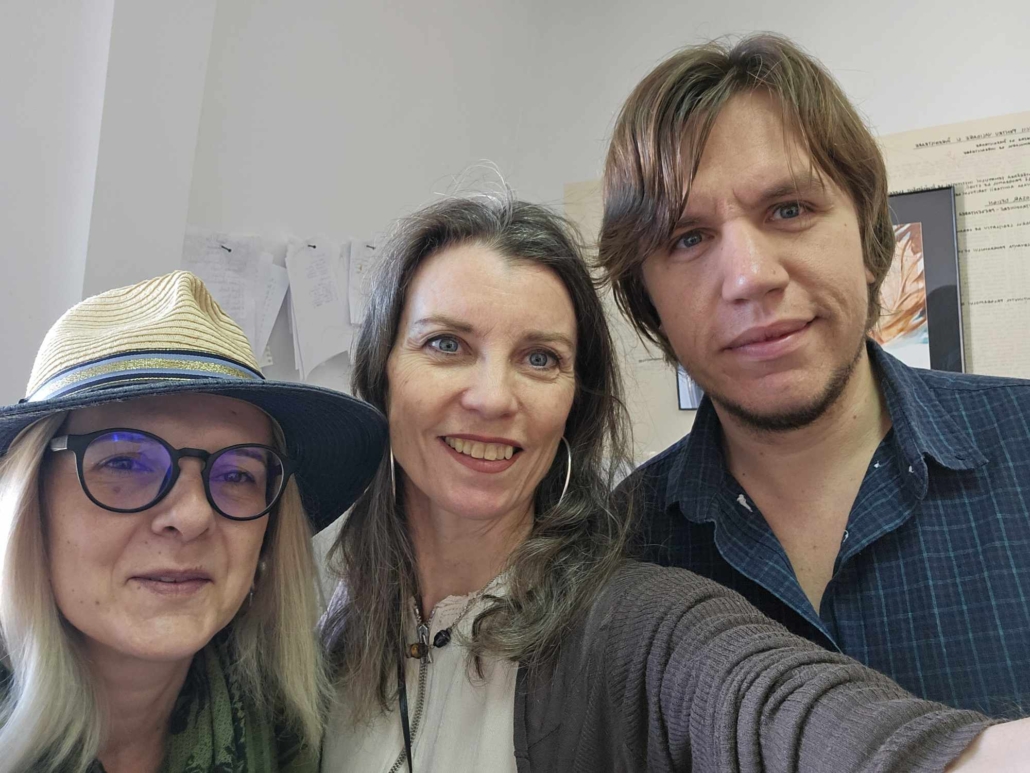
The next stop was Bucharest, where I spent several days with our alpha-contact, Felicia. She has done an amazing job in adapting the GSO-methodology to suit the Romanian school-system. They have expanded the menu of artistic contributions to include artforms as poems and essays. Hopefully we will be able to share some of these contributions soon.
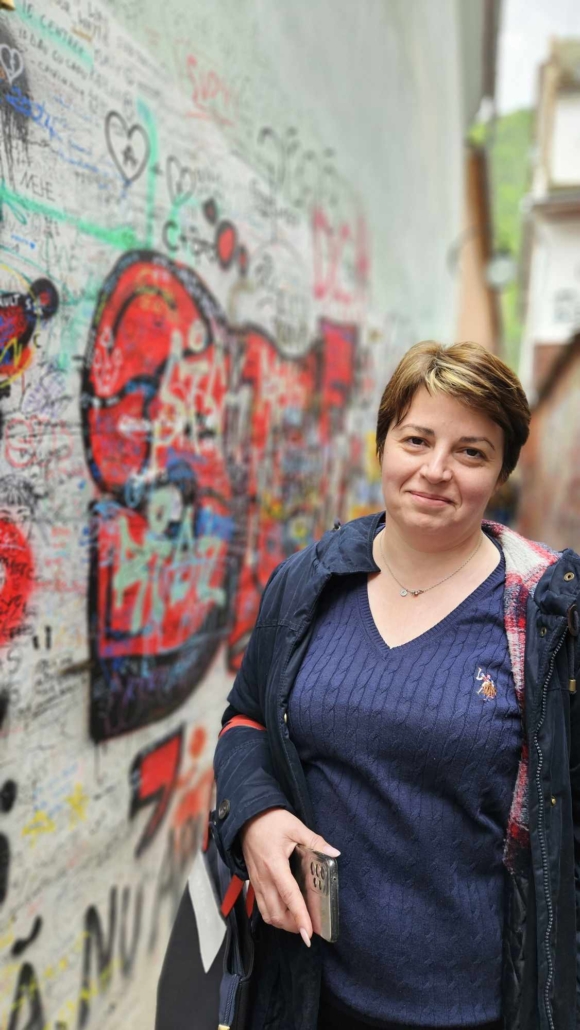
As part of the visit, the Romanian Ministry of Education hosted an online workshop for teachers across Romania, who all got an introduction into the GSO methodology.
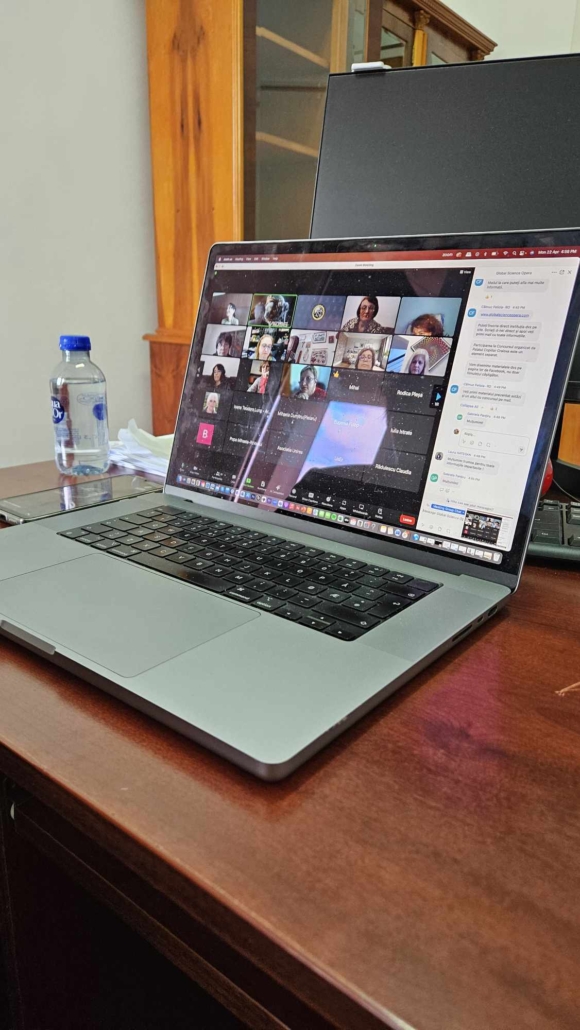

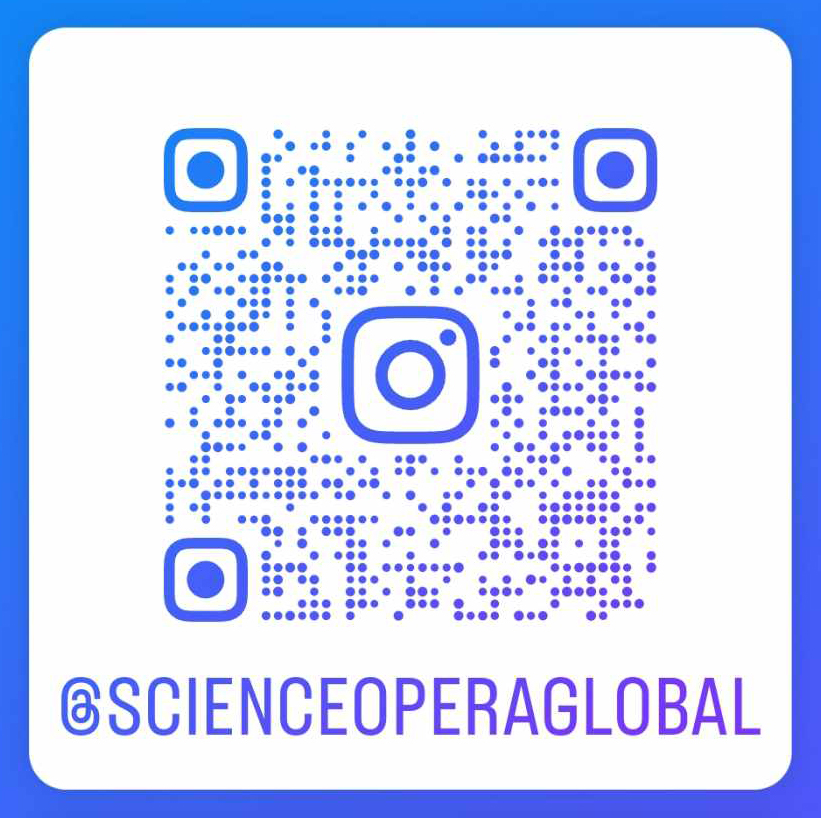
Find the Global Science Opera on WhatsApp and Facebook.
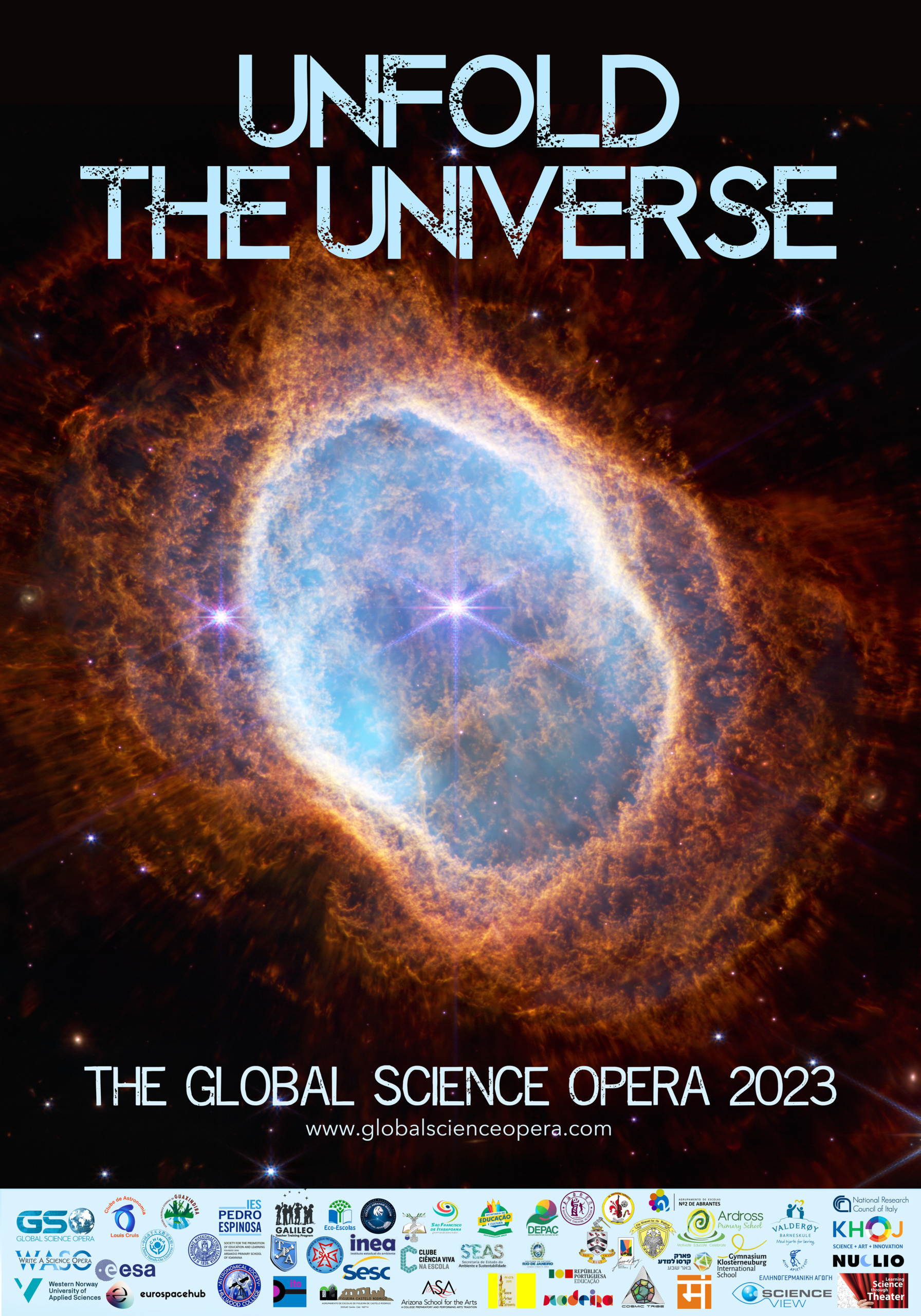
The bright star at the center of NGC 3132, while prominent when viewed by NASA’s Webb Telescope in near-infrared light, plays a supporting role in sculpting the surrounding nebula. A second star, barely visible at lower left along one of the bright star’s diffraction spikes, is the nebula’s source. It has ejected at least eight layers of gas and dust over thousands of years.
But the bright central star visible here has helped “stir” the pot, changing the shape of this planetary nebula’s highly intricate rings by creating turbulence. The pair of stars are locked in a tight orbit, which leads the dimmer star to spray ejected material in a range of directions as they orbit one another, resulting in these jagged rings.
Hundreds of straight, brightly-lit lines pierce through the rings of gas and dust. These “spotlights” emanate from the bright star and stream through holes in the nebula like sunlight through gaps in a cloud.
But not all of the starlight can escape. The density of the central region, set off in teal, is reflected by how transparent or opaque it is. Areas that are a deeper teal indicate that the gas and dust are denser – and light is unable to break free.
Data from Webb’s Near-Infrared Camera (NIRCam) were used to make this extremely detailed image. It is teeming with scientific information – and research will begin following its release.
This is not only a crisp image of a planetary nebula – it also shows us objects in the vast distances of space behind it. The transparent red sections of the planetary nebula – and all the areas outside it – are filled with distant galaxies.
Look for the bright angled line at the upper left. It is not starlight – it is a faraway galaxy seen edge-on. Distant spirals, of many shapes and colors, also dot the scene. Those that are farthest away – or very dusty – are small and red.
For a full array of Webb’s first images and spectra, including downloadable files, please visit: https:
The opera is inspired by the data and images from the James Webb Telescope, and in collaboration with NASA. 31 groups and schools from 17 countries are now sharing their scientific understanding through artistic creations through song, music, dance, acting and eco-art.
Global Science Opera (GSO) workshops in Phoenix, Arizona!
GSO workshops were held in September at Arizona School for the Arts (ASA) by Oded Ben-Horin, together with science educator Jeff Steinert. The workshops were held in four science classes and a music ensemble class during which students used a science-inspired cryptogram created by music educator Thomas Breadon as inspiration for improvisations. In addition, Ben-Horin provided a talk about GSO for the whole school. These activities were part of ASA’s participation in this year’s opera production, Unfold the Universe.
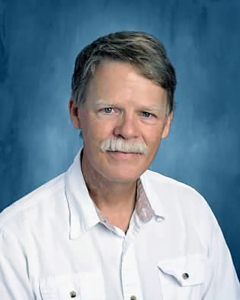
Jeff Steinert, science educator, Arizona School for the Arts
Several GSO workshops were held in the state of Rio de Janeiro in September. During a meeting at the headquarters of the State’s Minister of Education, it was agreed that the state would set in motion a state-wide GSO action in 2024. The action will include the offering of GSO participation to 36 high schools. Furthermore, several GSO workshops and school visits were conducted in the cities of Campos, São Francisco de Itabapoana, and São João da Barra.
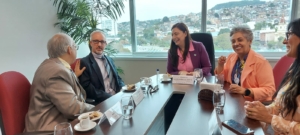
Image (right to left): Professor Amanda Passalini, Pedagogical Coordinator of the North Fluminense Regional Coordination; Professor Joilza Rangel (Undersecretary of Education), Professor Roberta Barreto de Oliveira, Minister of Education of the State of Rio de Janeiro; Dr. Oded Ben-Horin, Head of Department of Arts Education at the Western Norway University of Applied Sciences and coordinator of the Global Science Opera; Dr. Marcelo Souza, Universidade Estadual do Norte Fluminense Darcy Ribeiro\Coordinator of GSO’s activities in Brazil.
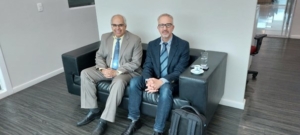
Image (right to left): Dr. Oded Ben-Horin, Head of Department of Arts Education at the Western Norway University of Applied Sciences and coordinator of the Global Science Opera; Dr. Marcelo Souza, Universidade Estadual do Norte Fluminense Darcy Ribeiro\Coordinator of GSO’s activities in Brazil.
The wonderful girls in Sri Lanka are collaborating with the equally amazing Indian students in creating the main story for Unfold the Universe. Again we were so warmly welcomed and we had an unforgettable week!
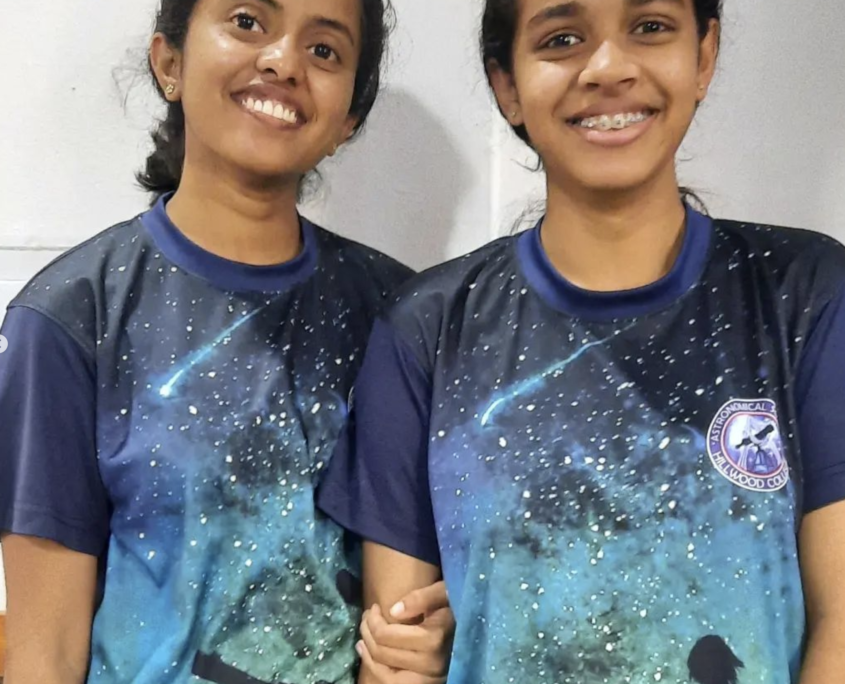
“We are the universe experiencing itself!” was the motto for the science-group. And we sure did experience this week!
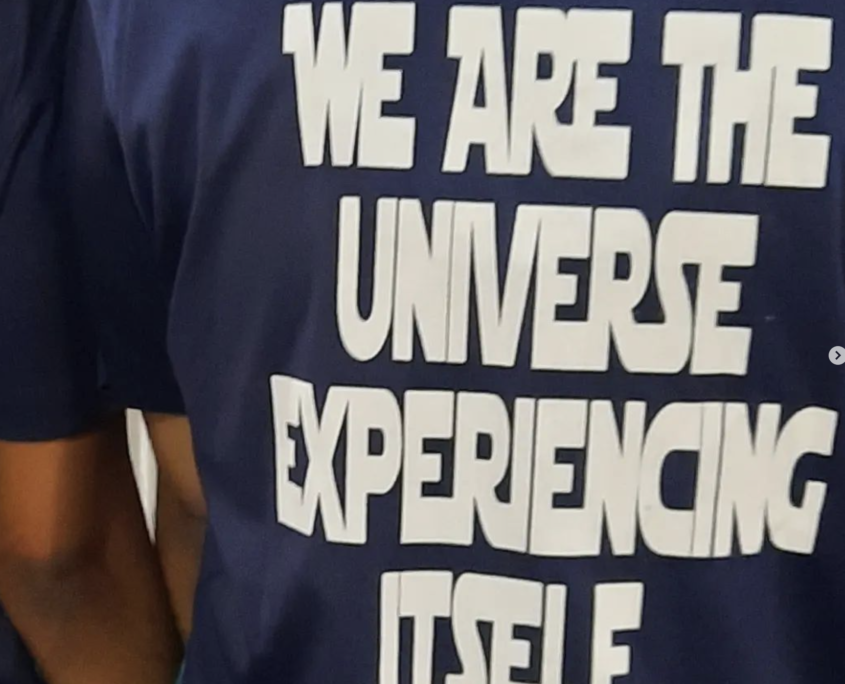
A lot of different approaches to creative STEAM-education with new classes all during the week.
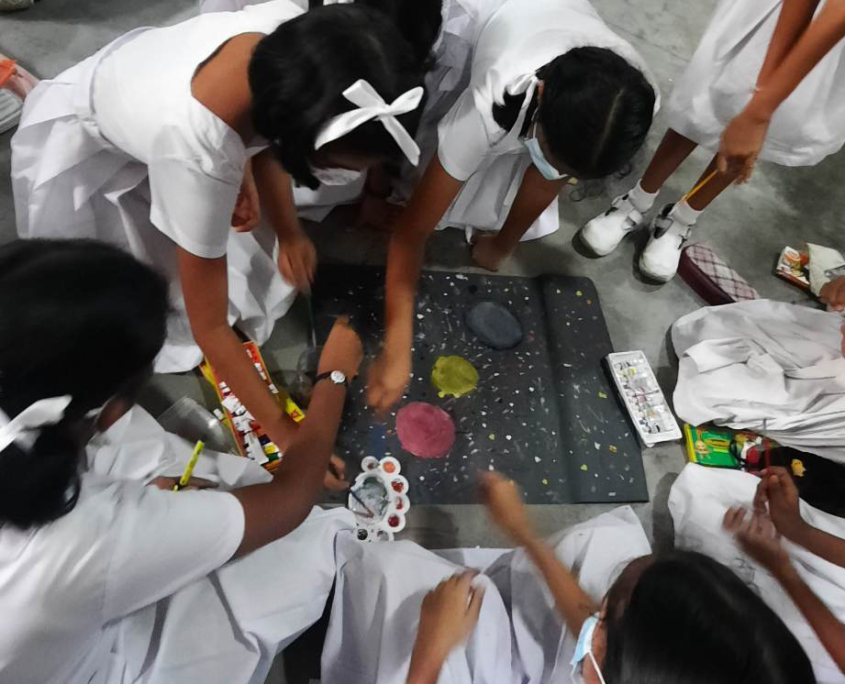
The girls in the science-club, who organized everything during the week, including a science – arts-presentation and the history of the telescope (both available in our teaching resources)
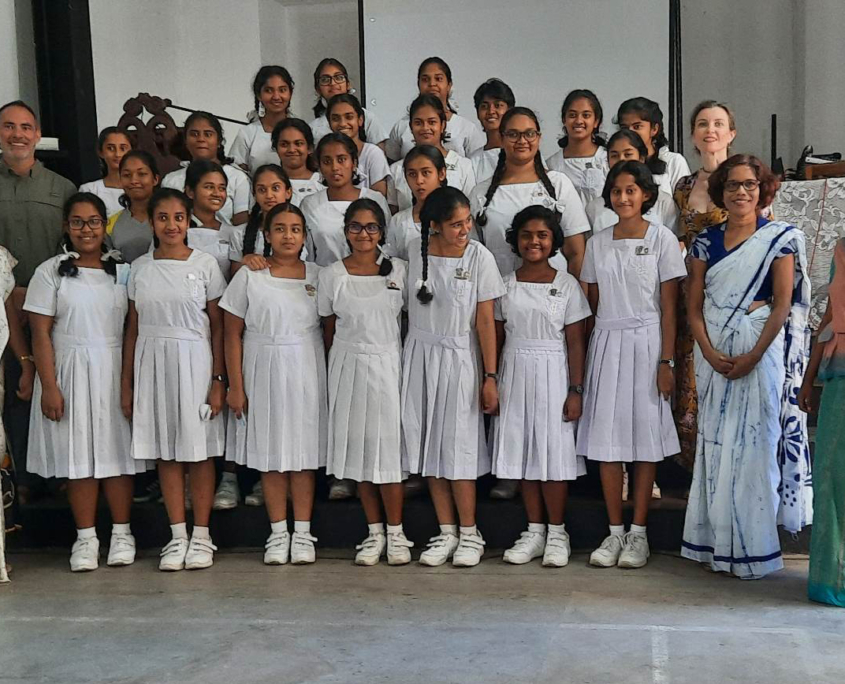
The week ended with an exhibition and several presentations.
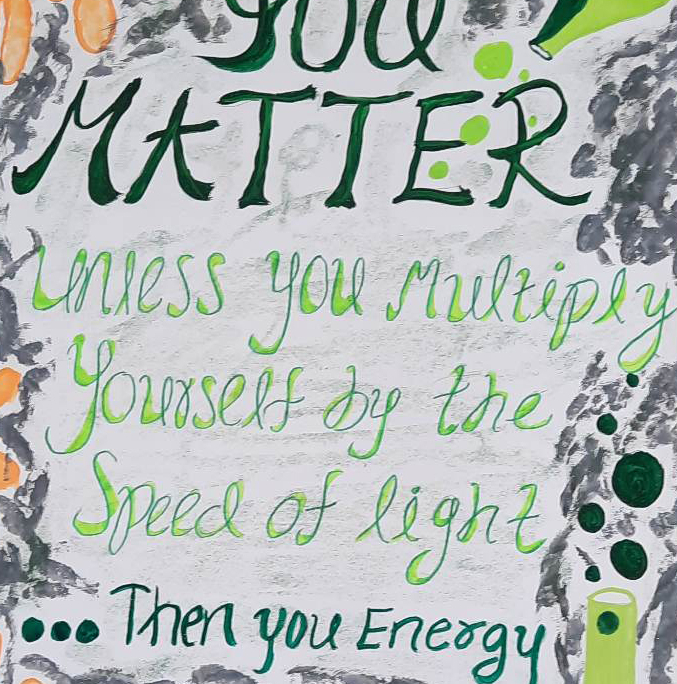
Some of the girls embarking on eco-art – stitching the universe.
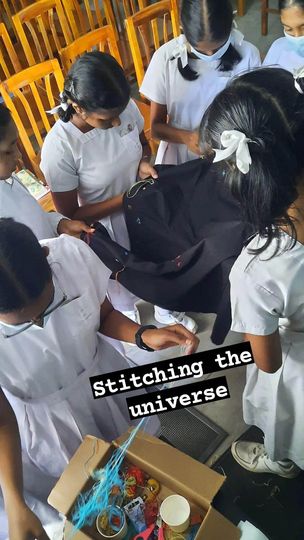
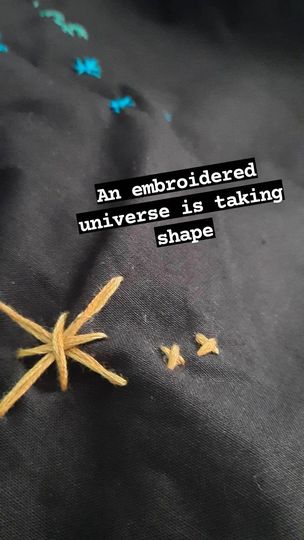
This site uses cookies. By continuing to browse the site, you are agreeing to our use of cookies.
OKLearn moreWe may request cookies to be set on your device. We use cookies to let us know when you visit our websites, how you interact with us, to enrich your user experience, and to customize your relationship with our website.
Click on the different category headings to find out more. You can also change some of your preferences. Note that blocking some types of cookies may impact your experience on our websites and the services we are able to offer.
These cookies are strictly necessary to provide you with services available through our website and to use some of its features.
Because these cookies are strictly necessary to deliver the website, refuseing them will have impact how our site functions. You always can block or delete cookies by changing your browser settings and force blocking all cookies on this website. But this will always prompt you to accept/refuse cookies when revisiting our site.
We fully respect if you want to refuse cookies but to avoid asking you again and again kindly allow us to store a cookie for that. You are free to opt out any time or opt in for other cookies to get a better experience. If you refuse cookies we will remove all set cookies in our domain.
We provide you with a list of stored cookies on your computer in our domain so you can check what we stored. Due to security reasons we are not able to show or modify cookies from other domains. You can check these in your browser security settings.
These cookies collect information that is used either in aggregate form to help us understand how our website is being used or how effective our marketing campaigns are, or to help us customize our website and application for you in order to enhance your experience.
If you do not want that we track your visit to our site you can disable tracking in your browser here:
We also use different external services like Google Webfonts, Google Maps, and external Video providers. Since these providers may collect personal data like your IP address we allow you to block them here. Please be aware that this might heavily reduce the functionality and appearance of our site. Changes will take effect once you reload the page.
Google Webfont Settings:
Google Map Settings:
Google reCaptcha Settings:
Vimeo and Youtube video embeds:
The following cookies are also needed - You can choose if you want to allow them:
You can read about our cookies and privacy settings in detail on our Privacy Policy Page.
Privacy Policy